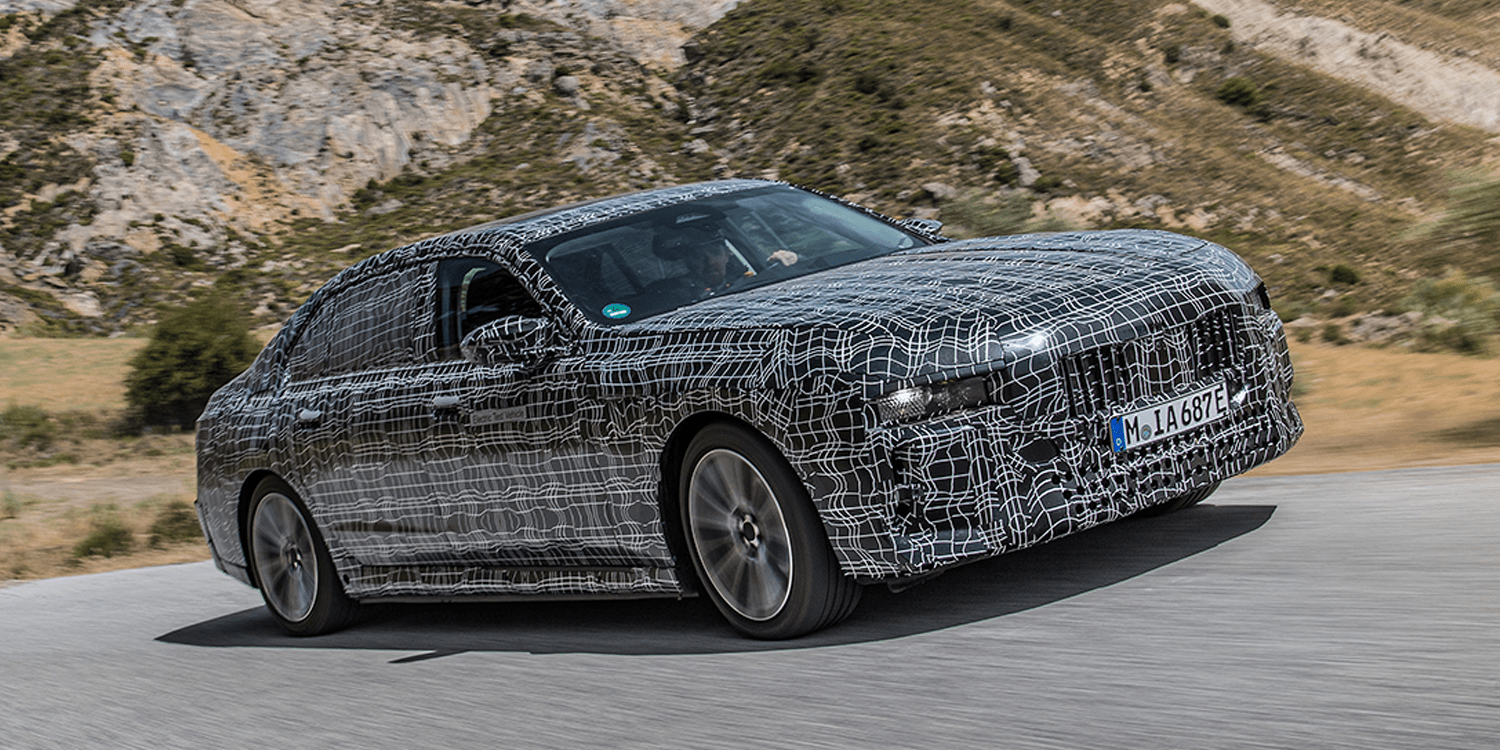
As the Group announced in the context of its business figures for 2021, it will already have 15 fully electric models in production this year, covering around 90 per cent of the current segments. However, BMW also included pre-production vehicles in the figure. Presumably, vehicles such as the i4 eDrive 40 and i4 M50 will also count as two models.
“With the rapidly growing supply and high demand” for the electric models already available, the BMW Group says it expects to rapidly increase electric sales, with the company aiming to have more than two million fully electric vehicles on the road by the end of 2025.
This target will be driven primarily by vehicles already on the market or will be launched by then based on fifth-generation electric drives. The big technology shift is scheduled for 2025 with the ‘New Class’ debut, but the New Class will play only a minor role in cumulative sales by the end of 2025. “With the BMW iX and BMW i4, we have launched what are probably the best e-cars of the present day – at least the test results and the high demand from our customers speak for themselves,” says BMW CEO Oliver Zipse. “And with the BMW i7, we’re going one better this year.”
BMW aims to reach 50 per cent EV share before 2030
BMW is pinning high hopes on the New Class, on which models from the size of a 1 Series to the 7 Series are to be based in perspective as a “cluster architecture” – and “uncompromisingly” designed for electric drives. A “completely new electric drive” reduces consumption and increases range. BMW does not provide details on this; the current fifth-generation involves current-excited synchronous motors. BMW is also developing a new generation of battery cells that, together with optimized cell chemistry, should simultaneously lead to significantly lower costs for the e-drive. BMW plans to announce details on this before the end of 2022.
According to the statement, the New Class can additionally accelerate the market penetration of e-mobility: the share of 50 per cent of the company’s global sales accounted for by fully electric vehicles could be achieved earlier than 2030. BMW had issued this target at its Annual General Meeting in May 2021. If the new, more optimistic scenario materializes, annual sales of fully electric vehicles by the BMW Group could exceed 1.5 million units as early as 2030.
The prerequisite for this is that the expansion of the charging infrastructure worldwide can keep pace with the growth in the model range and the rising customer demand for fully electric vehicles. Under these conditions, the BMW Group aims to exceed the mark of ten million fully electric vehicles delivered to customers in total in 2030.
Just a few days ago, BMW called for political support in expanding the hydrogen refuelling infrastructure. The occasion was an announcement about winter test drives of the FCEV small-series model iX5 Hydrogen. Instead of a 700-bar refuelling station every 150 kilometres by 2027, BMW called for intervals to be reduced to 100 kilometres to support hydrogen fuel cell vehicles.
Precisely what role FCEVs play in the Group’s sales plan is unknown: BMW refers to “all-electric” vehicles throughout the announcement, including BEVs and FCEVs. However, there is no more detailed breakdown between these two drive types. BMW only states that starting in the second half of the decade, “an increasing share in the drive mix” will be covered by hydrogen fuel cells. “Increasingly,” however, does not allow any conclusion as to how large the planned share is.
BMW also reiterates its stance that it does not want to commit to a fixed date for an end to internal combustion engines. “The BMW Group continues to assume that in the early 2030s, not all markets worldwide will have the necessary framework conditions for all customers to switch to pure electromobility,” the statement reads.
BMW increased sales from 98.9 billion euros in 2020 to 111.2 billion euros. Consolidated profit before tax for the full year was 16.0 billion euros, up from 5.2 billion euros in 2020. So even without the one-off effect of around one billion euros resulting from the pro-rata reversal of the provision following the conclusion of the EU Commission’s antitrust proceedings, BMW was able to increase earnings despite the semiconductor shortage significantly. The share of electrified vehicles in total sales of 2.52 million units was 13 per cent – this includes PHEVs. The Auto Division achieved an EBIT margin of 10.3 per cent (2020: 2.7 per cent).